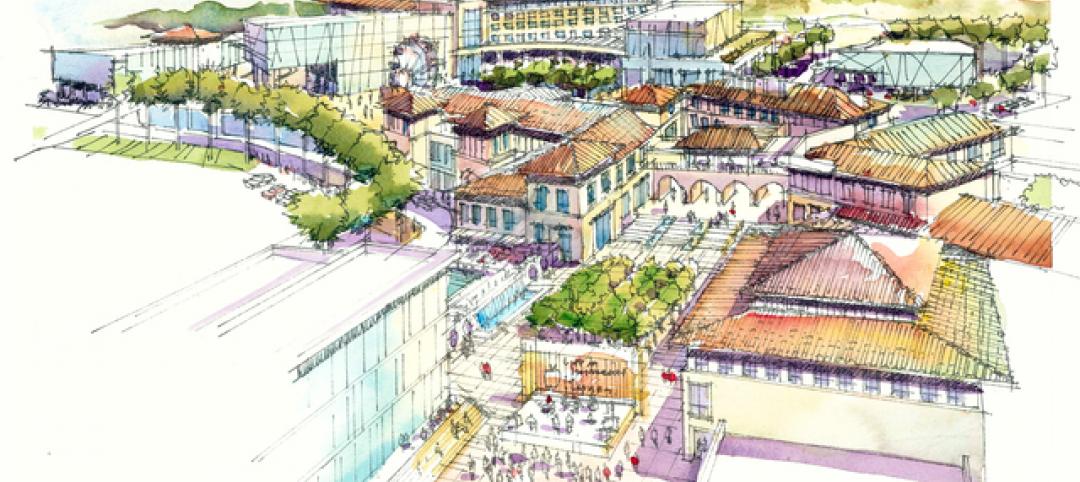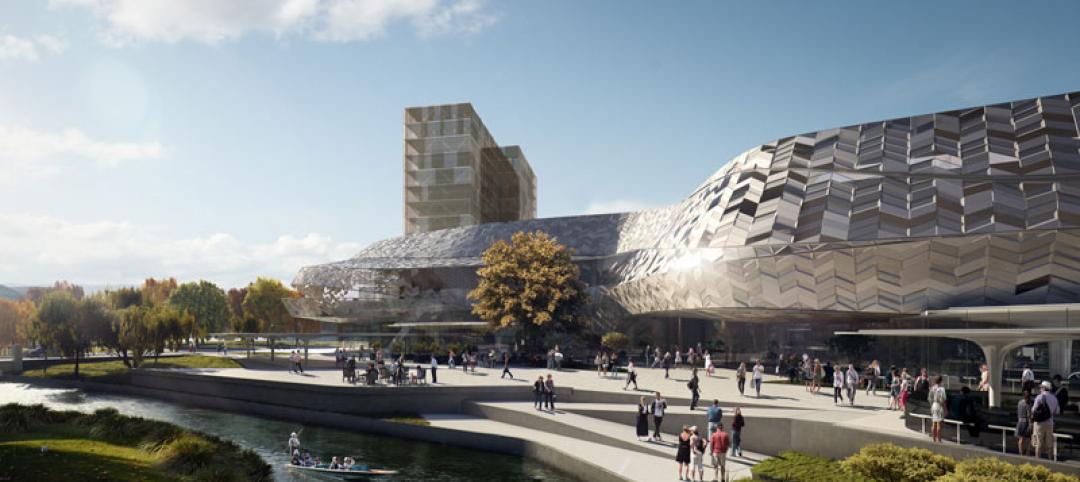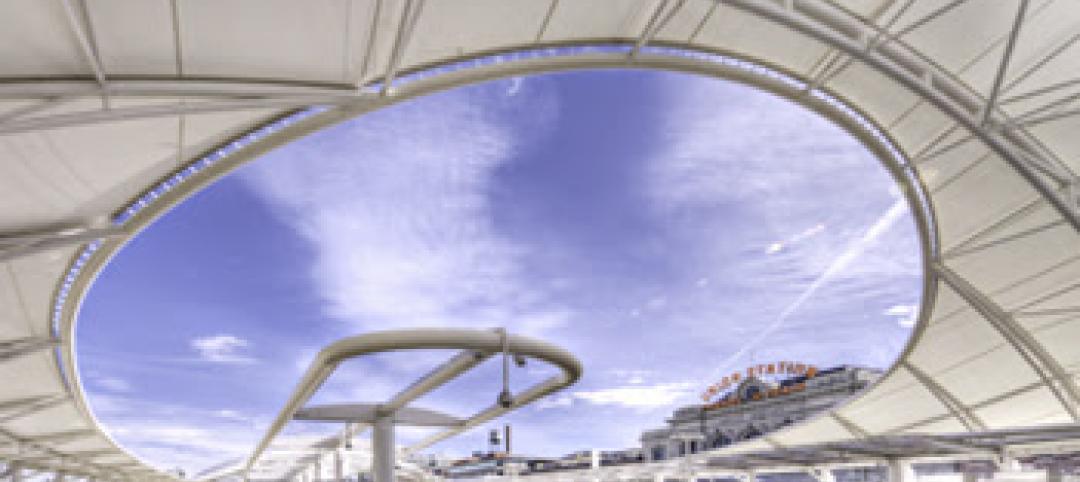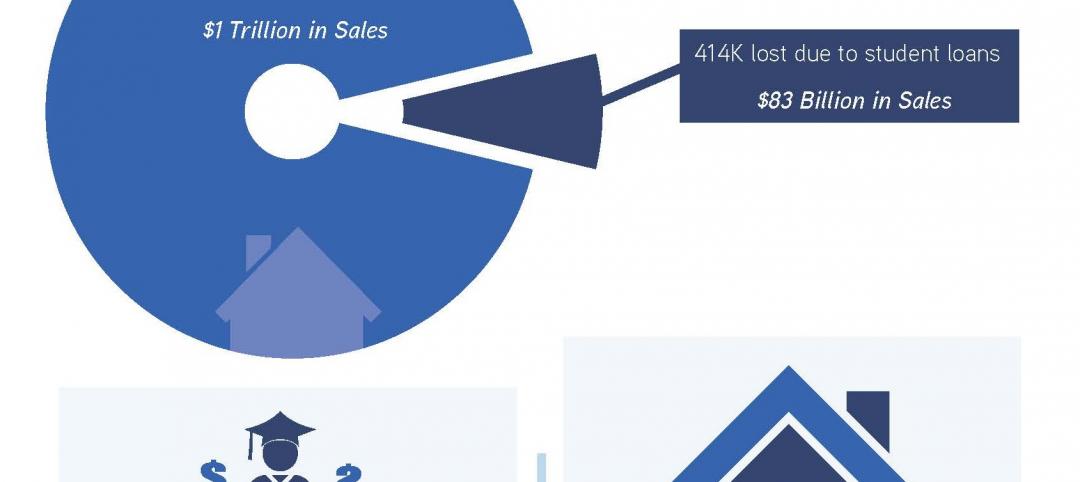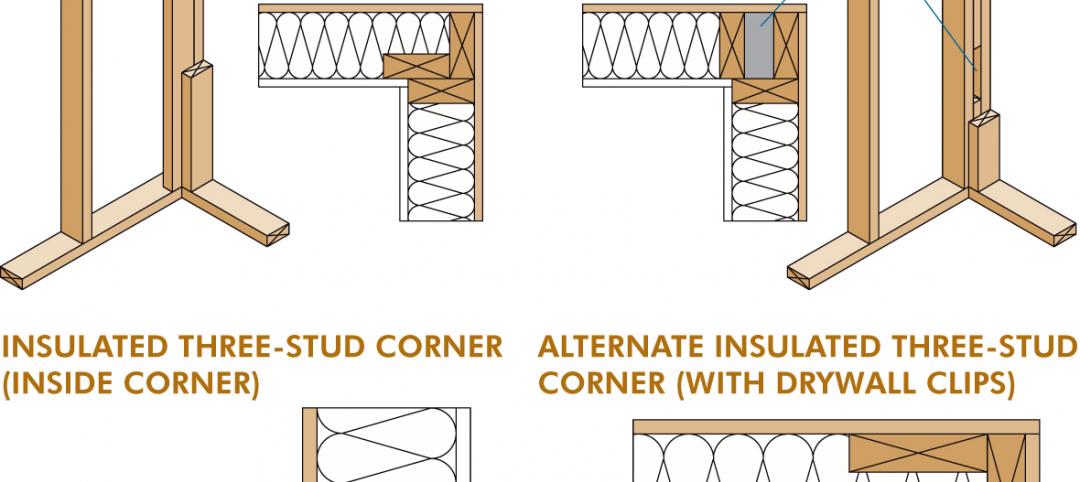Joining pipe can be a demanding task. Even with proper equipment and training, traditional methods of installation still run the risk of causing injury to installers, experienced or not. Liberty Utilities of New Hampshire wanted a way to keep its installers safe without compromising the quality of their installations, which is why the utility provider decided to start installing Viega MegaPress.
“We’re doing 500 in-to-outs and the biggest concern was the wear and tear on the installers’ arms, trying to save their bodies from the wrenching they’re doing,” said Bob Mostone, Gas Service Department Supervisor for Liberty Utilities. “Less mess and threading, that was what caught my eye. It’s easier to fit things together, especially since we’re changing out large-volume meters to rotary meters. Cutting out old flanges and installing new ones is a lot easier too.”
Mostone, who is a licensed gas fitter since 1991, has worked for the utility company for 29 years. When he first experienced press fitting technology, his first thought wasn’t about time savings.
“I saw press technology and I was interested in the wear and tear on the servicemen in the field,” said Mostone. “With Viega MegaPress, we have fewer soft tissue injuries, which are Liberty’s big concern this year.”
According to Mostone, every three months, Liberty’s Vice President of Operations and Engineering chooses a safety category to focus on. The previous category was trips and falls, and currently Liberty is focusing on reducing soft tissue injuries.
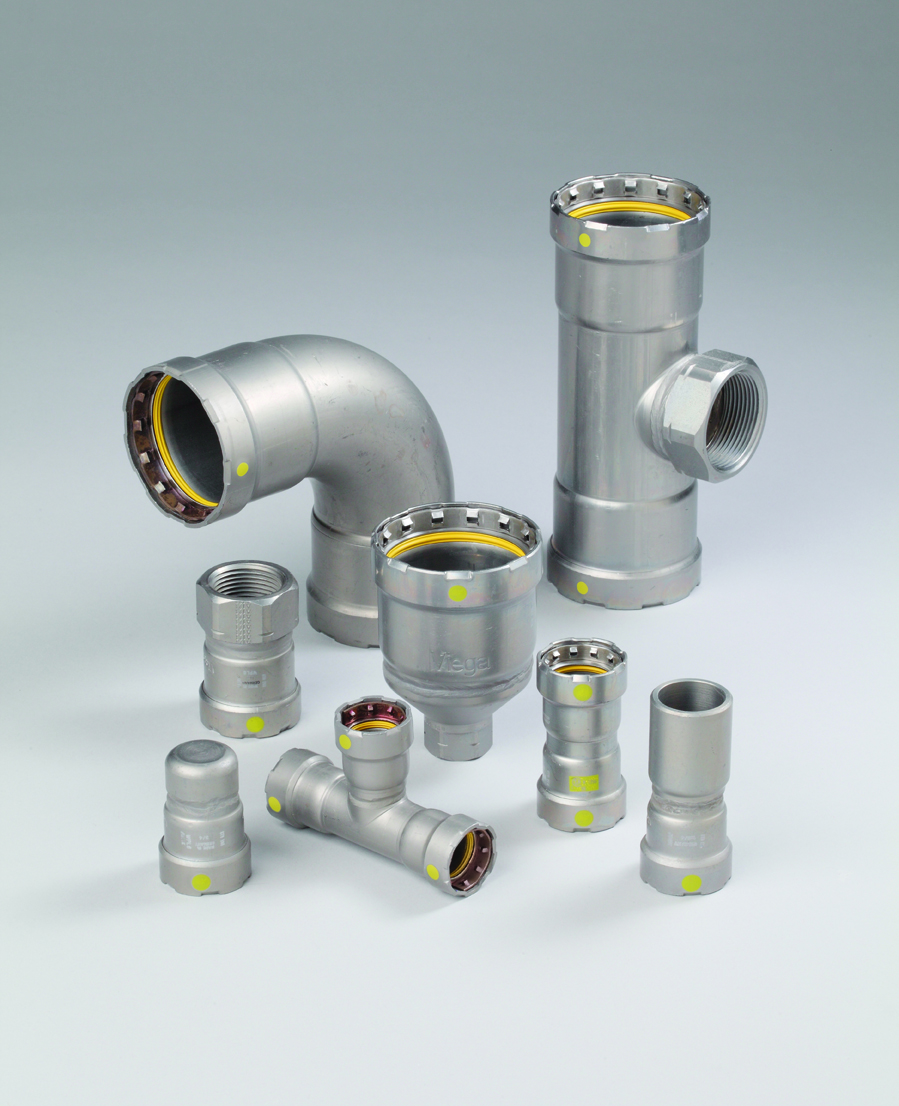
Viega MegaPress carbon steel press fittings
Liberty Utilities is installing Viega MegaPressG fittings in sizes ½" to 2" as it continues working to change out meters across its areas of service. Before experiencing Viega MegaPress, Liberty Utilities installed piping systems using traditional methods. When Liberty discovered the Viega MegaPress system, they were immediately interested in switching.
“The breaking point of the pipe is always weakest around the threads,” Mostone said. “The pipe-wall thickness from the thread breaks down. With threaded pipe, it snaps at the fitting. That’s our strong point now when we’re pressing them with Viega MegaPress.”
Viega MegaPress has allowed Liberty Utilities to take a weakness in black iron pipe joining and turn it into a strength.
Liberty Utilities worked with their local Viega Technical Manager to ensure that Viega MegaPress fittings would meet all codes and standards.
“We did a class with some of the pipers and the codes and standards group, and actually one of the local gas inspectors,” Mostone said. “From that class we voted to move forward to see if we could get it done. We went through the process for our company to approve it. We checked with the state fire marshal’s office and they were fine with it.”
Approved for more applications than any other carbon steel press fitting, Viega MegaPress saves installation time but also helps prevent labor-related injuries on the job.
“Saving wear and tear on the installers’ bodies was my biggest concern,” Mostone said. “Viega MegaPress is helping us with that.”
For more information, visit www.viega.us.
Related Stories
| Oct 8, 2014
Massive ‘healthcare village’ in Nevada touted as world’s largest healthcare project
The $1.2 billion Union Village project is expected to create 12,000 permanent jobs when completed by 2024.
| Oct 8, 2014
First look: Woods Bagot unveils plans for new Christchurch Convention Center
The locally-inspired building is meant to serve as a symbol of the city's recovery from the earthquake of 2011.
| Oct 8, 2014
Denver transit project wins design-build Project of the Year honor
The Denver Union Station Transit Improvement Project is among 25 projects honored by the Design Build Institute of America for excellence in design-build project delivery.
| Oct 7, 2014
Analysis: Student loans will cost housing industry $83 billion in 2014
More than 410,000 single- and multifamily home sales will be lost in 2014 due to student loan debt, according to analysis by John Burns Real Estate Consulting.
Sponsored | | Oct 7, 2014
Boost efficiency with advanced framing
As architects continue to search for ways to improve building efficiencies, more and more are turning to advanced framing methods, particularly for multifamily and light commercial projects.
| Oct 7, 2014
Economic gains are rallying rents in Raleigh, N.C.
The greater Raleigh, N.C., market appears to be getting back on its feet again, which is good news for rental property owners.
| Oct 7, 2014
Structured, not stirred: The architecture of cocktails [infographic]
In this downloadable graphic, technologist Shaan Hurley dissects 37 cocktails and analyzes their architectural makeup.
| Oct 6, 2014
Moshe Safdie: Skyscrapers lead to erosion of urban connectivity
The 76-year-old architect sees skyscrapers and the privatization of public space to be the most problematic parts of modern city design.
| Oct 6, 2014
Houston's office construction is soaring
Houston has 19 million square feet of office space under construction, 54% more than a year ago, and its highest level since the booming 1980s, according to local news reports.
| Oct 6, 2014
Design activity at architecture firms finally back to pre-recession levels: AIA report
Gross billings at architecture firms have increased by 20% since 2011, according to a new report by the AIA.


